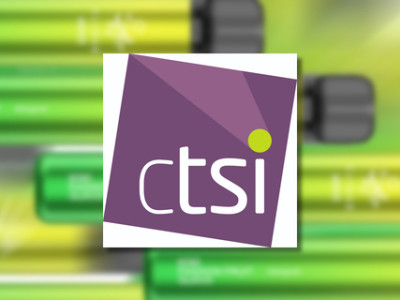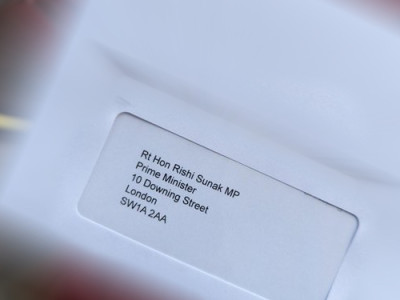Professor Lion Shahab, Professor of Health Psychology and Co-Director of the UCL Tobacco and Alcohol Research Group, said: “The recent rise in youth vaping among never-smokers requires action and given that current evidence suggests that most young never smokers who vape use disposables, a ban on this product category should disproportionally affect this group of vapers.
“However, the devil will be in the detail of the legislation. For instance, it would be easy for producers to add a charging port (as has already been happening) to avoid classification as a disposable. It is therefore important that this ban is accompanied by additional measures to reduce the appeal of e-cigarettes to young people who would never have smoked.
“Introducing plain packaging, removing ‘concept’ flavours and enacting a point of display ban for e-cigarettes, as suggested, is a step in the right direction. Differential taxation, to make e-cigarettes less affordable for younger people should also be considered.
“The government also has to walk a tightrope when this legislation is introduced to ensure that this does not give the false impression that e-cigarettes are put on a par with cigarettes, which are a far more dangerous product that still kills millions worldwide each year.
“E-cigarettes have helped thousands of smokers in the UK to switch away from combustible cigarettes, which, if used as intended, will kill over half of its lifelong users. However, nearly half of smokers now believe that e-cigarettes are as dangerous as, or more dangerous than, cigarettes, which may discourage them from switching. I therefore applaud the government’s plan to fund comprehensive support, including provision of free e-cigarettes, to those currently still smoking to give them the best chance to avoid unnecessary morbidity and mortality in the near future.
“This policy will need to be accompanied by information campaigns targeted at smokers to make them aware that e-cigarettes are a better option than continuing to smoke. In this context, the plan to bring ‘smokefree generation’ legislation to Parliament is likely to be the most important public health intervention of this century, righting a historic wrong, with tobacco products being the only legally available commodity that not only addicts its users but also kills them. Enacting legislation to ensure a smokefree generation will save millions of lives, reduce health inequalities and improve population well-being – a proud legacy for any government.”
Dr Sarah Jackson, Principal Research Fellow in the UCL Tobacco and Alcohol Research Group, added: “The proportion of young people who vape has risen dramatically over recent years. Most use disposable vapes, which are cheap, attractive, and easy to use. The proposed ban on disposables might seem like a straightforward solution to curbing the rise in youth vaping, but there are significant challenges to making a ban work. These products are very widely used – and not just by young people who have never smoked.
“An estimated 1.2 million adults who currently smoke and a further 744,000 who previously smoked currently use disposable vapes. A ban could have substantial unintended consequences for these groups, such as discouraging people who smoke from switching completely to vaping, which is much less harmful, or triggering relapse among those who have recently quit smoking using disposables.
“Disposable vapes are also particularly widely used among disadvantaged groups. Evidence shows e-cigarettes are an effective tool for helping people to stop smoking, but some smokers, such as those with learning difficulties or severe mental illness, can find it hard to use refillable products straight away.
“If the ban goes ahead, it will be important to encourage and support current and ex-smokers who use disposables to switch to other e-cigarettes rather than going back to just smoking tobacco. Exemptions for certain groups or settings should also be considered to give vulnerable smokers the best chance of quitting.”
Professor Ann McNeill, Professor of Tobacco Addiction, National Addiction Centre, Institute of Psychiatry Psychology & Neuroscience, King’s College London, is the lead author of all of the Government’s ecig evidence updates. She said: “Having carried out research for nearly 40 years on how best to reduce tobacco smoking, I am delighted to see the government introducing measures to make it obsolete over time – this underscores the unique deadliness of smoking. It is also important to see the government endeavouring to make vapes less attractive to children, whilst maintaining the accessibility of a variety of vapes for people who smoke given the proven effectiveness of e-cigarettes as a smoking cessation aid.”
Professor Jamie Brown, Director of the Tobacco and Alcohol Research Group at UCL, said: “The announcement that the government will go ahead with a new law to make it illegal to sell tobacco products to anyone born on or after 1 January 2009 is fantastic news and has the potential to be the most important public health intervention for a generation. There is also a clear need for action to reduce disposable vaping among young people who have never smoked.
“However, trade-offs need to be carefully considered. Our recent study showed that a ban on disposable e-cigarettes would affect an estimated 2.6 million people in England, Wales and Scotland. This group includes about 1.2 million people who currently smoke and a further 744,000 who previously smoked. This ban may discourage use of e-cigarettes among people trying to quit smoking and induce relapse among those who have already used disposables to quit. Cigarettes are far more harmful to our health and are not currently banned for adults. A ban on disposable e-cigarettes may signal to large numbers of people that these products are worse for our health or that their harm is comparable to that caused by smoking tobacco.
“I favoured a range of alternative policies targeting affordability and marketing, in the first instance, allied with rapid evaluation to judge whether they are sufficient to achieve reductions in youth vaping. Now that a ban seems likely it will be really important that exemptions for certain groups or settings are carefully considered and that it happens alongside campaigns and further investment to support adult smokers to quit smoking with other types of e-cigarettes.”
Finally, Professor Caitlin Notley, Professor of Addiction Sciences at the Norwich Medical School of the University of East Anglia, said: “The government announcement marks a real step forward in efforts to achieve a smokefree generation. Tobacco smoking is uniquely deadly. We must remain focused on this – supporting adults who smoke to quit and preventing young people from ever taking up tobacco smoking. Raising the age of sale and making it illegal for anyone born on or after the 1st January 2009 is a progressive policy that sends this clear message.
“The banning of disposable vapes is also intended to prevent young people from starting to use nicotine. Whilst we all agree that it is important to protect children, I think it is vital that we focus less on the vaping ban and more on wiping out tobacco from our population, as this is what will have the greatest impact on population health.”
Dave Cross
Journalist at POTVDave is a freelance writer; with articles on music, motorbikes, football, pop-science, vaping and tobacco harm reduction in Sounds, Melody Maker, UBG, AWoL, Bike, When Saturday Comes, Vape News Magazine, and syndicated across the Johnston Press group. He was published in an anthology of “Greatest Football Writing”, but still believes this was a mistake. Dave contributes sketches to comedy shows and used to co-host a radio sketch show. He’s worked with numerous vape companies to develop content for their websites.
Join the discussion
Trading Standards Welcomes Clarity
The Chartered Trading Standards Institute says it welcomes the “clarity and action from government to tackle youth vaping” with the plan to ban disposable vapes and related announcements
UKVIA Writes To Sunak
The UKVIA has sent a letter to Prime Minister Rishi Sunak to 'express profound dismay and disappointment' that the government has decided to proceed with a ban on disposable vapes
FOI Shows Disposables Ban Folly
389 Freedom of Information requests made by leading online retailer Vape Club and one by the BBC demonstrate the extent to which a ban on disposable vapes is a complete act of folly
ASH UK’s Coordinated Comment
Action on Smoking and Health has coordinated a series of responses to the Governments proposals to include interested parties












